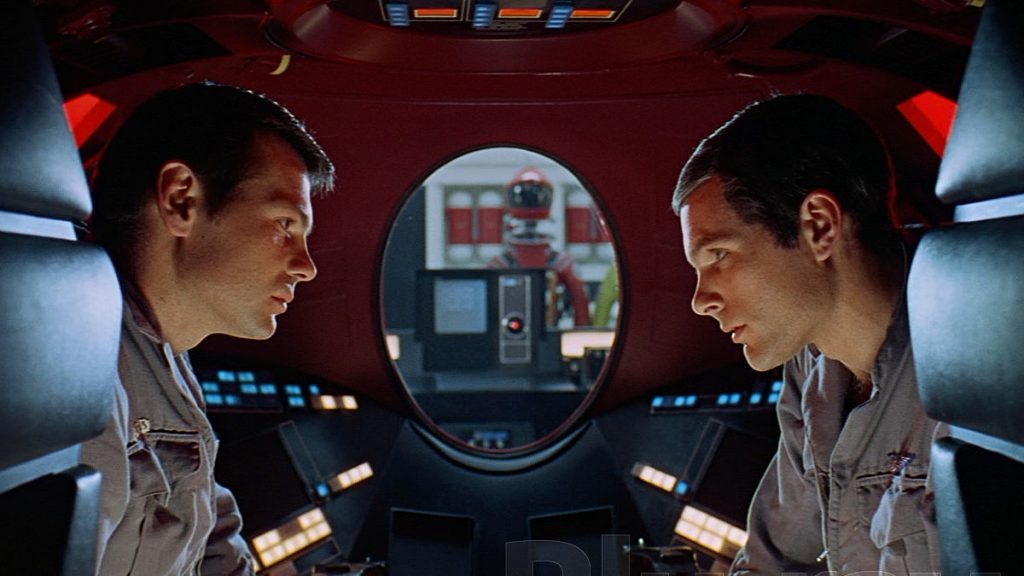2001: A Space Odyssey (1968)

Stanley Kubrick determined to take science fiction seriously and away from laser-blasting bug-eyed monsters. He imagined what life might be like when people could travel at the speed of light. Done in Cinerama screens. Kubrick hired Arthur C. Clarke to write a novel and would use that to adapt a screenplay for the film.
At the dawn of time for humanity, apes have an encounter with a small monolith sticking out of the ground. Shortly after that, they become meat-eaters and discover that a large bone can be used as a weapon, and this sows the seeds for civilization. Jump to the near future, where humans have found a monolith on the moon, which is emitting radio signals to somewhere around Jupiter. This first discovery of a life outside of Earth spawns a mission there, but the onboard computer named HAL was created a little too well, and begins to lose it’s “mind.”
2001: A Space Odyssey is one of cinema’s most eternally beguiling films, with a seemingly endless amount of theories bandied about on what it all means. Regardless of all of the conjecture, director Stanley Kubrick’s film is truly a masterpiece, a mind-blowing experience that has some of the most beautiful moments in cinematic history, from the brilliant set-up of the dawn of man to the earth-shattering, psychedelic ending.
There is no other film that has been able to fill me with such a sense of awe. No matter how self-important I might feel, 2001 reduces me to nothingness. I am inconsequential. This is one of those rare films that is different every time you view it, and just when you seem to make sense of it all, its true meaning is eternally elusive. 2001 is a uniquely overwhelming experience of sight and sound, a masterpiece for the time vaults.
Gary Lockwood was dating Stephanie Powers at the time.
Qwipster’s rating: A+
MPAA Rated: G (probably PG-13 today for violence and nudity)
Running Time: 141 min.
Cast: Keir Dullea, Gary Lockwood, William Sylvester, Daniel Richter, Leonard Rossiter
Director: Stanley Kubrick
Screenplay: Stanley Kubrick, Arthur C. Clarke (based on his story, “The Sentinel”)
